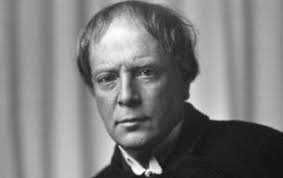I read Camus' 1947 novel The Plague on holiday twenty years ago. In retrospect, it was an odd choice to read on a Caribbean beach. Rereading it in 2020 it seems grimly apt. When I started it Covid-19 had claimed over 14,000 deaths in the UK and over 140,000 worldwide and when I finished those numbers had risen to 38,000 and 370,000.
That's why I was reading it. To see if what Camus had written about an epidemic in Oran in Algeria following the end of World War II could shed any light on a global pandemic seventy-three years later. Not medically. Clearly, the secret to the coronavirus cure wouldn't be here. But more in terms of how it affects people psychologically both within themselves and as members of a group.
Oran, in Algeria, is a large port on the Mediterranean coast while Earth is an entire planet but people, individually and in large groups, can show remarkably similar patterns of behaviour globally. That's because, as this pandemic has proven - much to the consternation of the populists, we're all the same under the skin. British people aren't exceptional. Brazilian people aren't exceptional. Americans aren't exceptional. The nations whose leaders act as if their citizens are exceptional are, not coincidentally, proving to be the ones who are registering the highest coronavirus death tolls.
At the time of Camus' book Oran was still part of France and is described by the author's narrator, Dr Rieux, as being "ugly" with "a smug, placid air". "A town without pigeons, without any trees or gardens, where you never hear the beat of wings or the rustle of leaves" and one so hot in the summer that the only option is to stay indoors.
The novel begins on 16th April 1947 (my mum's first birthday) and with Dr Bernard Rieux (both a creation of Camus and Camus himself) feeling a soft dead rat under his foot. An unusual event but not an extraordinary one and certainly not one to exercise Rieux's mind as much as his poorly wife who was due to move, the next day, to a sanatorium in the mountains.
When Rieux pays a second visit to Michel that evening he finds him with swollen limbs, a high temperature, and complaining of internal pains. "The bastard's burning me inside" exclaims Michel whose condition, you'll not be surprised to read, does not improve at all in the following days. Out of breath, with bloodless lips, he rages against "them blasted rats" before dying in the back of an ambulance.
Confusion about what's happening soon gives way to, as we have seen recently, panic. The citizens of Oran had always thought rat infestations and deaths by "exotic maladies" happened elsewhere, not in their own tranquil town and had M Michel been the only person to die this idea, surely, would have held. But, soon enough, others begin to perish. It's suggested that a man who has died did so because his trombone playing had weakened his lungs, the weather was responsible for what was happening, and that dead rats being found in the lift of a three star hotel were evidence, to the upper echelons, that a terrible thing is happening. They are being placed in a position as precarious as the poor of the city. For the first time ever it seems.
"A pestilence isn't a thing made to man's measure; therefore we tell ourselves that a pestilence is a mere bogey of the mind, a bad dream that will pass away and, from one bad dream to another, it is men who pass away, and the humanists first of all, because they haven't taken their precautions"
or
"At first the fact of being cut off from the outside world was accepted with a more or less good grace; much as people would have put up with any other temporary inconvenience that interfered with only a few of their habits. But, now they had abruptly become aware that they were undergoing a sort of incarceration under that blue dome of sky, already beginning to sizzle in the fires of summer, they had a vague sensation that their whole lives were threatened by the present turn of events, and in the evening, when the cooler air revived their energy, the feeling of being locked in like criminals prompted them sometimes to foolhardy acts"
But Camus had no pre-cognitive powers. He merely saw that the folly of vain men, the folly of all men, was eternal and unchanging. He writes of men imagining themselves to be far freer than they really are. Men can plan journeys, form views, and do business. Surely plagues are just one other thing that man can control. As the deaths in Oran pile up, many in the town carry on almost as normal. Rieux looks from his window and even he feels only a "vague unease", "a faint qualm for the future".
Even when the number of victims climbs into the thousands people struggle to see those dying as actual people so much as a number ("what man knows ten thousand faces?" Camus asks) and wild rumours begin to circulate (the forties equivalent of the 5G conspiracy theorists). Others, as ever, claim it is God's punishment to man for not being sufficiently devout and some suggest it's not a plague at all, just a strong fever. Others call for a wait-and-see policy. A lethal policy. As the world is now witnessing.
A chronicle is initiated with the intent of informing the townspeople, "with scrupulous veracity, of the daily progression and recession of the disease, to supply them with the most authoritative opinions available to its future course" and, to begin with, it is studied with furious intensity but soon enough people pay no heed to it and those that obsessed over it the most pay the least attention. Months into the plague many have lost all interest in the numbers of dead and wouldn't have been able to tell you, even, if the daily death rate is increasing or decreasing.
Again, sounds familiar. As do the chapters given over to rushed and impersonal funerals and the sections devoted to anxious people who, instead of getting worse in their anxiety, experience something of a great levelling during the crisis. There's an interesting part where Camus talks of people's despair becoming so ingrained, so normalised, that they now exist in a perpetual 'habit of despair'. It makes everyday life more tolerable but is so much harder to escape from than simple 'despair'.
Camus/Rieux writes of the ennui that results in the citizens of Oran cultivating rituals and habits (something many of us can identify with now) even before the plague arrives. There was much heavy drinking and some even suggested that alcohol could protect you from the plague. He describes "the ache of separation from those one loves" as becoming, along with fear of affliction, "all shared alike", he talks of people "duped" by their "blind human faith in the near future", and of them, simultaneously, having "an irrational longing to hark back to the past" and, conversely, "speed up the march of time".
If the book has less clarity on how the epidemic ended, and the second half is harder to get a grip on - even a bit dull in places, then that only goes to make it even more relatable right now. I won't tell you how it ends because I don't do spoilers. But it's not as if if The Plague holds the key for us in coming out of this crisis. In life all people, and all nations, often face very similar problems. The problems we face are not what defines us. It's how we react to them that does. My friends and family are acting calmly, rationally, and with no little anger towards the government. The governments of the United Kingdom and the United States are acting selfishly, cruelly, and with a wanton disrespect for even their own advice. They should not, and will not, be forgiven.
When I read the book on a Cuban beach twenty years ago it felt like a historical document about an abstract event that could only have taken place in a distant country and in a distant time. When I read it, two and a half months into an isolation during a pandemic that has killed over 370,000 people, I was as disabused of that notion as each and every one of us has been this year of an old line we'll need to bury with our hundreds of thousands of dead:- "it couldn't happen here".
































































